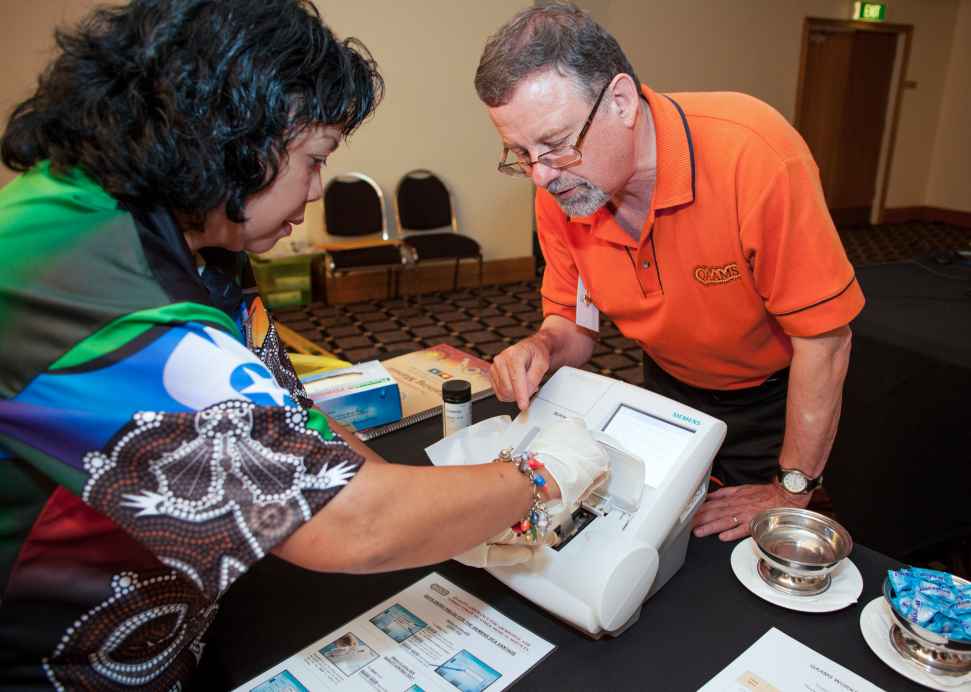Thanks to portable pathology devices, digital rehab programs, and national health initiatives, technology is helping overcome the challenge of distance to deliver life-saving care where it’s needed most.
Approximately seven million Australians live in regional and rural areas, representing about 28 per cent of the country's population.
While living remotely has its benefits, it also comes with certain challenges. Supermarket runs may take a little more organisation, but it’s access to healthcare that remains one of the most serious concerns and biggest challenges, as highlighted in the Flinders Wicked Problems report. Thirty-thousand Australians took part in the Report, with 26 per cent of them identifying access to quality healthcare and community care – and particularly their access to rural and regional services – as a major concern.
Improving the health of Australians in these areas requires overcoming difficulties presented by vast distances and limited resources – and now, new technology is providing the answers.
On-the-spot testing transforms rural care
Imagine not having to make a second appointment to have a blood test and not having to wait for the result. That’s now a reality for some, thanks to rapid pathology tests that deliver results during patient consultations. The tests, delivered by Flinders University’s International Centre for Point-of-Care Testing, allow doctors to diagnose and treat immediately, boosting efficiency and outcomes. Trained nurses and health workers can also perform the tests, making care more accessible and cost-effective.
The use of small, portable GeneXpert medical devices to conduct these tests has been proven to be as reliable and accurate as tests carried out in a hospital laboratory.
On-site pathology tests, developed in collaboration with national and international partners, have been expanded to also include infectious diseases in rural and remote locations – which proved vital in containing COVID-19 during the 2020 pandemic.
“Point-of-Care Testing is one of the world’s fastest growing pathology industry sectors, with the worldwide market valued at $30.9 billion,” explains Professor Mark Shephard, Director of the International Centre for Point-of-Care Testing.
MORE: From mobile brain scanners to reducing pain: The future of surgery is here

MORE: ‘I lost my sense of self and purpose’: How we can change cancer treatment
The Centre’s next goal is to use the GeneXpert device to establish a point-of-care testing network in Australia for hepatitis C diagnosis, to help meet World Health Organization virus elimination targets by 2030.
The Centre has also developed a program, Quality Assurance for Aboriginal and Torres Strait Islander Medical Services (QAAMS), to help Aboriginal and Torres Strait Islander people living with diabetes in rural and remote communities.
The program equips Aboriginal health workers with skills and essential resources – including on-site pathology testing of blood or urine samples – to address diabetes problems through culturally appropriate and accessible services.
Diabetes affects 80 per cent of this group of Australians and the chronic disease triggers debilitating health consequences such as renal complications.
Encouraging women to take charge of their health
Women in South Australia are 20 per cent less likely to enrol in a cardiac rehabilitation program than men, research shows. This problem is amplified in rural areas, where risk factors such as smoking and diabetes are up to 1.6 times higher in women.
Now an internet-based cardiac rehabilitation program for women in rural and remote South Australia is being developed with the goal being to empower women to take charge of their heart health.
It forms part of Flinders’ Cardiac Rehabilitation Especially for Women (CREW) project, which aims to improve women’s participation in cardiac rehabilitation and increase their long-term survivorship.
"Women in rural and remote areas embody resilience and strength, yet they often face unique challenges accessing the essential healthcare they deserve,” says Flinders PhD student Orathai Suebkinorn, who is developing the technology.
“My goal is to ensure that distance is no longer a barrier to a heart-healthy life.”
“Women in rural and remote areas embody resilience and strength, yet they often face unique challenges accessing the essential healthcare they deserve.”
- Orathai Suebkinorn
PhD student, Flinders University
![]()
Sturt Rd, Bedford Park
South Australia 5042
South Australia | Northern Territory
Global | Online
CRICOS Provider: 00114A TEQSA Provider ID: PRV12097 TEQSA category: Australian University








